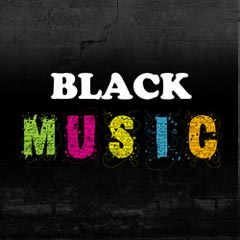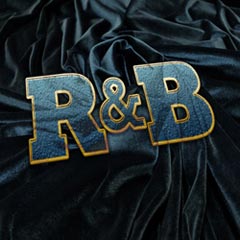Black music
ON AIR - PROGRAMMING
The voice stifled by marginalization and ghettoization makes for music with an incredible power, a direct blow from the motherland of Africa, breathing over the industrial city. Music comes in many forms and among those are genres. One of these that has profoundly shaped the course of the past and present is black music. Made famous by influential musicians like Chaka Khan, D'angelo, and Aretha Franklin, this genre speaks to both current and hope for a brighter future. It resonates deeply in our cultures both young and old, blazing a rebellious new path with something to offer every audience. No matter what comes after black music stands with each word offering as rallying cry, exploring the human spirit in all its vulnerability and rapture! African-American music is a term to describe the music genres played by African-Americans. The genres are the blues and the ragtime, which evolved into jazz and soul.
A Celebration of Black Music: A Direct Blow from the Motherland of Africa
Black music is a genre with a profound and significant impact on modern culture. It is the voice of a people who have been stifled by marginalization and ghettoization, making it a direct blow from the motherland of Africa. Black music has evolved over time, but its base has remained the same – expressing the soul of a people who have been oppressed for centuries. This music genre has redefined what it means to be Black, showcasing a unique and beautiful culture that has influenced countless people around the world.
African-American music has its roots in the blues and ragtime, which later evolved into jazz and soul. These genres were created as a response to the injustices and oppression African-Americans experienced after being forcibly brought to America. The blues was born out of a need to express pain and suffering, while ragtime helped to elevate the spirits of a people struggling to find their place in American society. Jazz emerged as a form of artistic expression and rebellion, while soul music became a call to political action, speaking against discrimination, poverty, and the struggle for financial mobility and human rights.
Black music has played a vital role in American history, and its influence can be seen in genres outside of jazz and soul as well. For example, rock and roll, hip-hop, and R&B all have roots in Black music. From Elvis Presley to Beyoncé, Black music has served as a foundation for popular music, a testament to the creativity and ingenuity of the African-American community.
But Black music isn't just a means of self-expression or cultural identity – it's also a powerful symbol of resilience and unity. Black music has always been a tool for mobilization, for bringing communities together and galvanizing them to fight against injustice. Black artists have used their platforms to speak on social issues, resist racial privilege, and promote diversity and equality. These musicians have helped shape the course of American music, redefining what it means to be an American and influencing popular culture worldwide.
Black music is a genre that has touched the hearts and minds of millions of people. It is a music that originates from the African-American community, and its evolution and expansion has been a demonstration of resilience, talent and creativity. It is a music that transcends boundaries of class, race, and ethnicity. The impact of Black music on society, community, and culture cannot be overstated, and its influence continues to resonate in contemporary music today. From its roots in the blues and ragtime to contemporary hip-hop and R&B, Black music is a living expression of joy, beauty, and resistance.
A Celebration of Black Music: A Direct Blow from the Motherland of Africa
Black music is a genre with a profound and significant impact on modern culture. It is the voice of a people who have been stifled by marginalization and ghettoization, making it a direct blow from the motherland of Africa. Black music has evolved over time, but its base has remained the same – expressing the soul of a people who have been oppressed for centuries. This music genre has redefined what it means to be Black, showcasing a unique and beautiful culture that has influenced countless people around the world.
African-American music has its roots in the blues and ragtime, which later evolved into jazz and soul. These genres were created as a response to the injustices and oppression African-Americans experienced after being forcibly brought to America. The blues was born out of a need to express pain and suffering, while ragtime helped to elevate the spirits of a people struggling to find their place in American society. Jazz emerged as a form of artistic expression and rebellion, while soul music became a call to political action, speaking against discrimination, poverty, and the struggle for financial mobility and human rights.
Black music has played a vital role in American history, and its influence can be seen in genres outside of jazz and soul as well. For example, rock and roll, hip-hop, and R&B all have roots in Black music. From Elvis Presley to Beyoncé, Black music has served as a foundation for popular music, a testament to the creativity and ingenuity of the African-American community.
But Black music isn't just a means of self-expression or cultural identity – it's also a powerful symbol of resilience and unity. Black music has always been a tool for mobilization, for bringing communities together and galvanizing them to fight against injustice. Black artists have used their platforms to speak on social issues, resist racial privilege, and promote diversity and equality. These musicians have helped shape the course of American music, redefining what it means to be an American and influencing popular culture worldwide.
Black music is a genre that has touched the hearts and minds of millions of people. It is a music that originates from the African-American community, and its evolution and expansion has been a demonstration of resilience, talent and creativity. It is a music that transcends boundaries of class, race, and ethnicity. The impact of Black music on society, community, and culture cannot be overstated, and its influence continues to resonate in contemporary music today. From its roots in the blues and ragtime to contemporary hip-hop and R&B, Black music is a living expression of joy, beauty, and resistance.
What are you thinking about?






